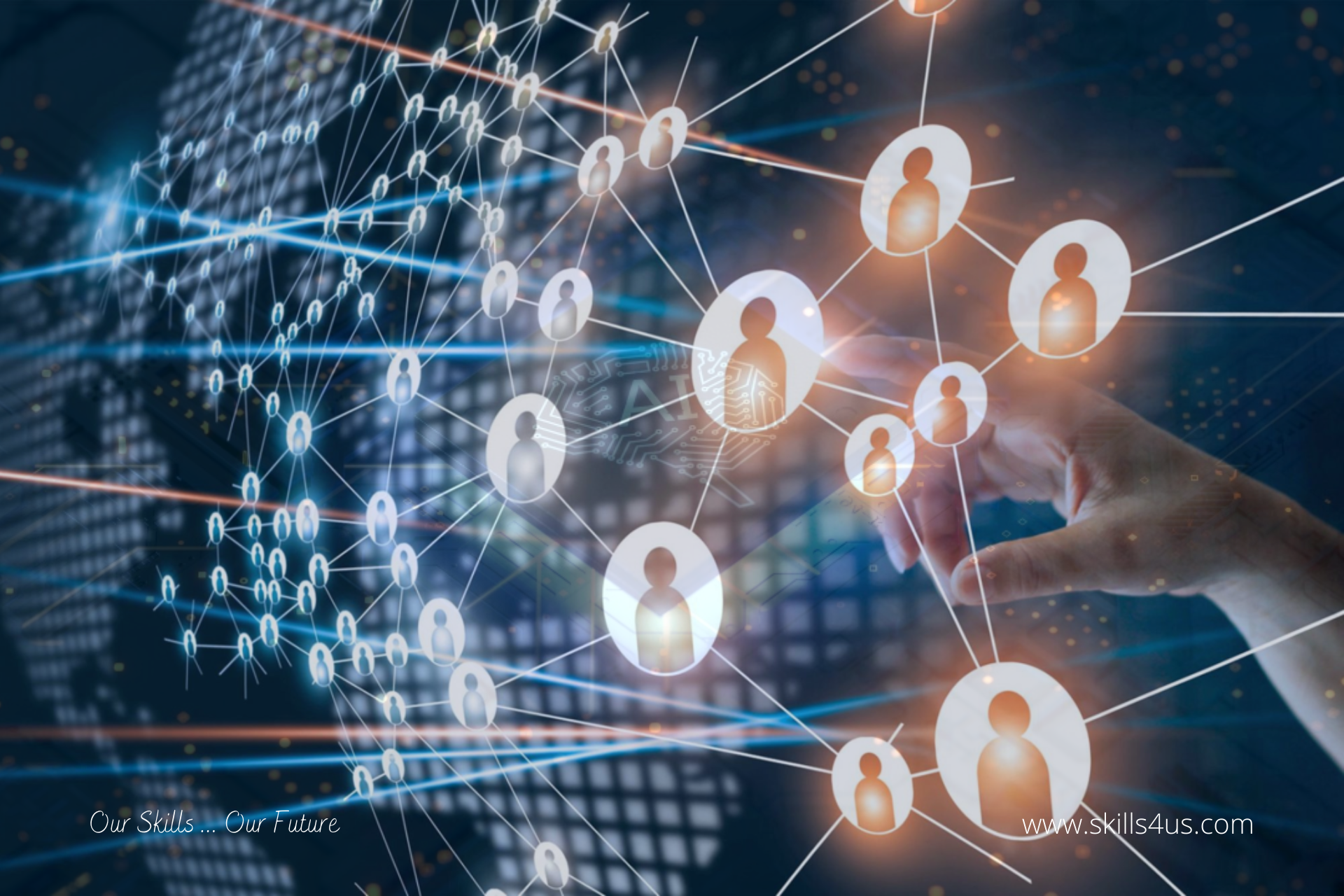Today’s business world is witnessing rapid technological development, as AI has emerged as a transformative force, revolutionizing various sectors. Therefore, most organizations strive to keep pace with this development and intelligent transformation to face the challenges and obstacles. That prevent their business from becoming successful digital in the future. While AI is often associated with the automation of jobs and businesses. Its positive impact on talent management must be considered. Thus, AI enhances the ability of talent management to reshape the future workforce and enhance growth, innovation, and productivity. To see this positive impact, leaders across all sectors must commit to transforming their talent management strategy. And leverage AI-powered tech tools to find, attract, recruit, manage, retain, and develop employees across the board.
AI enhances the ability of talent management through:
1. Building a more integrated approach to talent management
AI enables organizations to build a more integrated approach to talent management. Knowing that most employees want to know what the organization can offer them regarding learning and development to help them achieve their goals. So they are looking for organizations that invest in their growth because they are thinking ahead about the future roles they might fill as they advance in their careers. Organizations facilitate this integration by using AI to map jobs, improve learning programs, consume employee HR expertise, recruit proactively, and manage talent lifecycles.
2. Define metrics and analyze data
Defining metrics and setting standards is vital for organizations, as AI contributes to their adequate definition. It also analyzes the resulting data and results. For example, these metrics include increasing qualified external applicants, increasing internal mobility, reducing attrition, and access to more diverse candidates. Thus, continuous monitoring of results allows managers and HR professionals to make real-time decisions and changes to recruitment, retention, and development strategies.
3. Setting future visions for developing internal talents
AI can be used to automate internal mobility programs and match employees to specific training programs, special projects, and mentorships that matter most to them. It can also assist managers in developing and hiring internal talent to meet specific needs. By combining AI tools with a powerful team and assertive strategy, organizations can set forward visions to develop internal talent in preparation for any challenges in the workplace.
4. Evaluate the skills and abilities of candidates for potential jobs
AI helps facilitate the recruitment process by matching the capabilities and potentials of candidates with the skills required for the job. Talent management platforms also typically rely on augmented and independent levels of AI to personalize the candidate experience and direct the job seeker to the role that best matches their skills and abilities. Thus candidates are evaluated based on skills and abilities only.
5. Using virtual recruitment procedures applications
AI can direct applicants to jobs of more excellent value by creating a series of virtual recruitment procedures. Recruitment specialists use virtual processing applications to upload resumes they receive from recruitment software. And through the talent management platform supported by AI, it is analyzed and classified to match candidates with available jobs based on their skills and capabilities.
6. Career path planning
HR professionals use AI features in talent management to plan career paths and provide personalized career guidance to employees based on their innate abilities, potential and future attitudes that matter to them.
7. Provide a more personalized experience for new employees
The AI can match new employees’ preferences with recommendations for them. Business leaders are counting on it to improve the new hire process by offering new employees a more personalized experience. Knowing this can help these employees hire well and improve their retention.
8. Retention of high performers
AI can identify patterns that predict when high-performing employees will decide to leave for another job. Therefore, human resources professionals can communicate with them and provide information about new roles within the organization and the communication channels through which they can discuss the department and role. So they can be kept.
9. Offer competitive compensation packages
AI can use market factors, employee performance, and job achievement to help improve compensation and benefits packages. Thus, business leaders can propose new practical strategies to provide competitive compensation packages and promote reward programs and incentives that improve results.
10. Measure the opinions and feelings of employees
The AI can process natural language and look at chatbot sessions and quarterly surveys to gauge employee opinions and sentiments. Employee surveys give business leaders objective insight into which aspects of an organization’s culture are functioning and need improvement.
AI can be a powerful tool for organizations looking to develop their employees. Moreover, this can lead to better employee retention rates, increased job satisfaction, and a more competitive and dynamic job market. Therefore, organizations and individuals must stay abreast of the latest developments in AI and seize the opportunities it presents.
